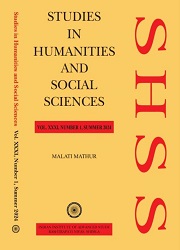Integrating Soil and Soul
A Study of Sri Aurobindo ’s Select Poems and Nonfiction
Keywords:
Deep Ecology, Humanistic Ecology, Ecospirituality, EcocrticismAbstract
The role of Nature in human life is undeniable; however, the study of the environment or ecology emerged as a separate discipline much later. In 1962, environmentalism gained momentum after the publication of Rachel Carson’s book The Silent Spring. By the early 1970s, many literary scholars, scientists, and environmentalists started showing concern towards conserving natural resources and replenishing them by minimising man-nature conflict. From India, the seer poet Sri Aurobindo had spoken extensively about Nature as an agency of transformation of human consciousness; unfortunately, it is not known to many. However, after carefully studying his poems and nonfiction, it is evident that his approaches come close to the doctrines of deep ecology and ecological humanism, which culminate into ecospirituality. Based on this theoretical ground, the present paper seeks to explore the ecological conscience of Sri Aurobindo in his poems and nonfiction. The primary references to this work will include poems from Ahana and Other Poems, sections from Savitri, and essays from The Life Divine, which will be analysed thoroughly to place Sri Aurobindo within the canon of ecocriticism.


